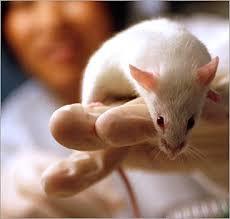How Noble are the Breakthrough Prizes?
James Bezer asks whether they’ve achieved their lofty goals

“I don’t like honours.”
When asked how he felt to have been awarded the Nobel Prize, the most prestigious honour that can be bestowed upon a scientist, Richard Feynman seemed rather unimpressed.
“I’ve already got the prize,” he said. “The prize is the pleasure of finding the thing out, the kick in the discovery, seeing other people use it. Those are the real things. The honours are unreal to me.”
Presumably then, Feynman would not have had much interest in the Breakthrough Prizes.
Founded in 2012 by some of the world’s most famous billionaires, the 2015 awards were announced this week to recognise those scientists behind the biggest ‘breakthroughs’ in life sciences, fundamental physics and mathematics.
Starting with a $3 million prize fund that spits in the face of the Nobel’s puny $1.1 million, everything about the Breakthrough Prizes is big. They aim to turn scientists into “rock stars” with a star-studded, Oscars-style awards ceremony, and inject some “razzmatazz” into the rather tedious business of curing cancer and finding a theory of everything.
One of those funding the prize, Mark Zuckerberg, thinks they have “the potential to provide a platform for other models of philanthropy, so people everywhere have an opportunity at a better future.”
Those behind the project seem to think of themselves as doing something good for humanity: encouraging breakthroughs in medicine, recognising genius, and generally making science seem sexy.
How they hope it will achieve these lofty ambitions, I’m not quite sure.
Unlike the excellent Bill & Melinda Gates Foundation, another billionaire’s philanthropic gesture, the Breakthrough Prizes do not directly pay for any new research. How is giving away $3 million to blow on a house or a yacht supposed to have a better impact on humanity than using it to fund a lab? It’s not even like the people receiving this money have gone previously unrecognised—many are also Nobel laureates, and all command salaries vastly greater than what the average researcher could ever hope to achieve.
The entire project seems as empty as the wiry ball that serves as a trophy. Among the criticism of the prizes was an editorial in Nature which points out: “you cannot buy class, as the old saying goes, and these upstart entrepreneurs cannot buy their prizes the prestige of the Nobels.”
Even its name is the biggest cliché in science reporting.
Unusually for an award, news coverage has been directed more towards those handing out the prizes than their recipients. They come across as a feeble attempt at philanthropy by a bunch of billionaires who don’t want to be shown up by Bill Gates and Warren Buffet. How many people could name a single recipient of any one of these prizes? So much for making scientists famous.
It’s true that we need to do all we can to promote science and technology. We need to make sure that bright new ideas for treating diseases get the funding they need to make it into hospitals. We need to promote more esoteric research into mathematics and fundamental physics, not just so we better understand the world we live in, but to lay the foundations for potential future technologies. We need to encourage bright young people to take science up as a career, and to ensure that the public is aware of the enormous benefits of scientific advancement.
But the Breakthrough Prizes achieve none of this. The way to promote science is by showing it as it is: interesting, rewarding and useful. Science isn’t about becoming rich and famous. Science is about doing science. Trying to dress it up with a pointlessly large cheque really isn’t doing anyone any favours.









